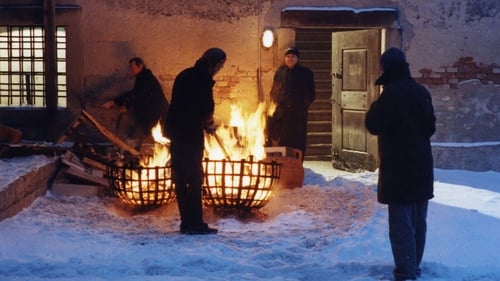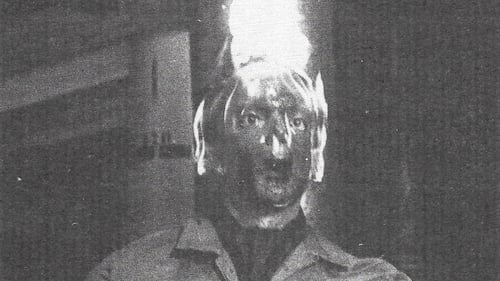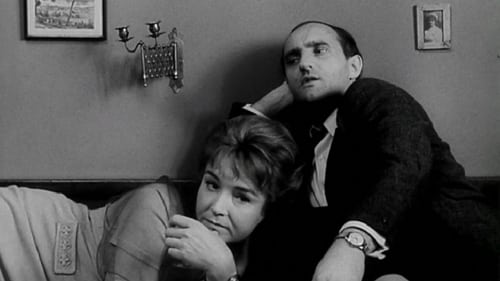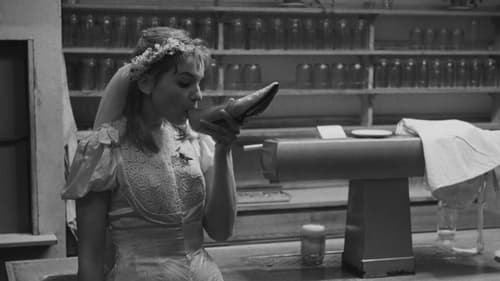Jiří Štíbr
Birth : 1937-05-19, Prague, Czechoslovakia

Director of Photography
The popular TV star and director Peter Weck staged the turbulent comedy "Herzensfeinde" by Uli Brée, in which romance is not neglected either. Weck himself shines as a lovable and hypochondriac pedant; his vacation partner and "Herzensfeinde" is congenially embodied by Friedrich von Thun. The attractive ladies of the heart of the two vacationers are played by Susanne Uhlen and Michèle Marian.

Director of Photography
After the last concert of a long tour, Dr. Kurt Ostbahn retires to his favorite café to relax. He is suddenly dragged into a bizarre criminal case. His vacation then fills with vice, perversion and murder. Of course, this is not just a story; Dr. Kurt Ostbahn experienced everything himself!
The characters are not inventions; they are personal acquaintances of Dr. Ostbahn. Only the names and details have been changed so as to make them barely recognizable. And the story is more exciting than real life.

Director of Photography
Michael Haneke's adaptation of Franz Kafka's unfinished novel Das Schloss. K arrives in a remote village a stranger. In attempting to establish himself there, he enters the nightmarish world of the castle bureaucracy.

Director of Photography
Set within a Viennese apartment block, this affectionate Austrian comedy makes fun of the strange habits of the famed city's residents. The building is located in a middle-class area and has residents from many age groups and walks of life. Many of the tenants are much older, but there are also a few children about. In one apartment lives a large group of Polish construction workers, while a Yugoslavian woman and her huge family attempt to survive in their tiny flat. The episodic story of the lives of these and other tenants is framed by a visit from a civil servant from the Office of Statistics.

Director of Photography
The disabled ex-soldier Andreas Pum lost a leg for emperor and father land. After leaving the army he receives a license and a drehorgel. One day he gets into a controversy with a welldressed gentleman, disturbs the public order, and hits a policeman. Andreas Pum goes to jail, loses his license and becomes toilet guard in the Cafe Halali after his release. Only at the moment of death he recognizes that he was always too decent and too obedient.

Director of Photography
On the basis of the hardy perennial "boss-assistant" relation, "The Mortal Fortune" depicts the passion of worldly existence.
The anonymous hero of the story, to which the spectator is introduced, attempts at freeing himself from his enslaved life. He finally has to realize the transience of the creature man and whithdraws from the constraints of worldly existence.

Director of Photography
The story of Austrian, Johann "Jack" Unterweger, who wrote a book about his criminal past while serving a life term in prison for assault. In 1974, Unterweger murdered 18-year-old German citizen Margaret Schäfer by strangling her with her own bra, and in 1976 was arrested and sentenced to life in prison.

Director of Photography
Tommi Fischer, a newly divorced copywriter is looking for a replacement mother for his son. When he falls for the emancipated costume designer Evelyn he soon finds himself in the undesired role of a stay-at-home dad.

Director of Photography
Martin Powolny, a down and out actor, calls himself Tiger. He lives in a tree house and practices his characteristic yell. An offer to make a film and an air-travel ticket entice him into the big city of Vienna. The director hopes he can finance the film if Tiger plays the leading role. There is no screen story as yet. Running away from a mean nightclub owner, Tiger is hit by an automobile and lands in a hospital.

Director of Photography
A historical drama about the revolution of 1848/1849 in the Austrian empire.

Director of Photography

In the 1950s, Ludvik Jahn was expelled from the Communist Party and the University by his fellow students, because of a politically incorrect note he sent to his girlfriend. Fifteen years later, he tries to get his revenge by seducing Helena, the wife of one of his accusers.

Captain Martin from the police's child department and his colleague Kraus are called to Znojmo to help solve a case regarding stolen toys found in the town's subterranean passages. The members of the local police department are convinced that the thieves are the well-known "customers" from the Znojmo elementary school, pupils Exner and Mandlík. Martin, however, has doubts about these culprits. These doubts grow even stronger after the local self-service shop is robbed and the local tobacco store reports that it is missing a lot of imported cigarettes. Martin questions the children, inspects both shops and searches through the underground.

Assistant Camera
A manifesto of sorts for the Czech New Wave, this five-part anthology shows off the breadth of expression and the versatility of the movement’s directors. Based on stories by the legendary writer Bohumil Hrabal, the shorts range from the surreally chilling to the caustically observant to the casually romantic, but all have a cutting, wily view of the world.

Assistant Camera
Several parties—a prostitute, aging football players, working girls, two men playing pool, and a hedonistic young man—each coalesce in a tavern.

Fati Farari, a black man from Africa, is completing his studies in classical piano at the Music Academy of Prague. It's the day before his first solo concert, where he is going to play Bach. While he strolls around the city he is thinking, not so much about the concert as about himself, both as a lonely foreigner and as a human being in cosmos. Here and there he encounters some racist comments, but mostly he just feels the weight of social exclusion because of his otherness, especially when it comes to women. On the morning of the day for his concert the embassy informs him that his whole family has perished. He feels totally broken, although he thinks that everyone holds some pain inside. His piano teacher, a professor at the Academy, looks him up, and tells him that he heard what has happened. The professor advises him to communicate his feelings that evening by using his Bach.

Assistant Camera
While a woman is in the hospital preparing to deliver her child, her husband has all day to reflect upon his wife and their relationship. As he tends to his job as a television repairman, Slavek fondly remembers how he first met Ivana and the days they spent getting to know one another. Slavek also grows increasingly aware of the environment that surrounds him and questions the society his new child will be entering. Loaded with a repeated plea for social change, this is the first feature from Czech writer/director Jaromil Jires.

Assistant Camera

Assistant Camera

Assistant Camera

When a man stops at a motel one evening in 1961, his tormenting behavior drives one of the people present at the motel to remember his experiences in a concentration camp during WWII.

This lyrical comedy story takes place in two hot days in the small South Bohemian village. On the shore of a small pond, summer guests and local youth meet. As is typical of the works of Hrubín, it is a conflict of youth and age, life and death, represented by the medical student Zuzana and her beloved Jirka.

automechanik Marcel

















